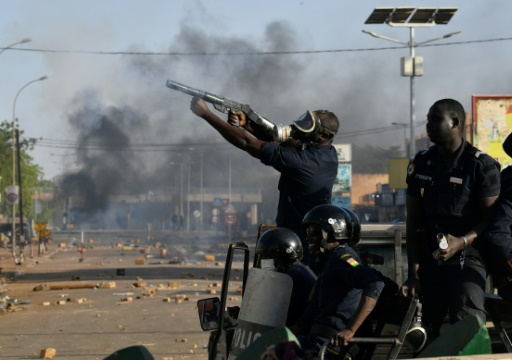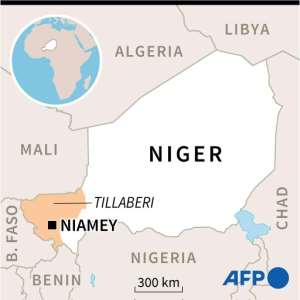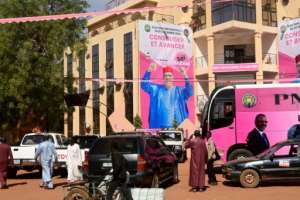
[ad_1]
Former interior minister Mohamed Bazoum won the presidential elections in Niger, according to provisional results released Tuesday, as the opposition cried foul and clashes erupted.
Bazoum, the ruling party candidate, won 55.75% of Sunday’s vote, while Mahamane Ousmane collected 44.25%, said the Independent National Electoral Commission (CENI).
“(These) results are provisional and must be submitted to the Constitutional Court for evaluation,” CENI President Issaka Souna said in an announcement attended by senior officials and members of the diplomatic corps.
He put the turnout at 62.91%.
 Niger. By (AFP)
Niger. By (AFP) The elections were billed as the first democratic transition in the history of the coup-prone Sahel state, which is also fighting extreme poverty and two bloody jihadist insurgencies.
But shortly before the results were announced, Ousmane’s campaign called the second round an “electoral hold-up” and urged the public to “rally” against him.
“The results that are published are in many cases not in line with the expression of the will of the people,” said campaign manager Falke Bacharou.
“(Outgoing President Mahamadou) Issoufou and his camp persist in challenging the sovereign people of Niger,” Bacharou said as enthusiastic supporters shouted “changji” or “change” in Hausa.
Opposition supporters armed with sticks gathered near the headquarters of the ruling Niger Party for Democracy and Socialism (PNDS) in Niamey, and set tires on fire as police fired tear gas, a photographer saw from AFP.
A local journalist from the southern city of Zinder, the second largest in the country, said protests had also broken out there.
Political veterans
Issoufou voluntarily resigned after two five-year terms, paving the way for Niger’s first handover of power between elected officials since independence from France in 1960.
 Rose: Election posters for Bazoum lined Niamey. By BOUREIMA HAMA (AFP)
Rose: Election posters for Bazoum lined Niamey. By BOUREIMA HAMA (AFP) Bazoum, 60, co-founder with Issoufou of the PNDS, won a little over 39% of the votes in the first round on December 27.
He campaigned on continuity with the previous government, which pledged development while facing the world’s highest birth rate – an average of seven children per woman.
Ousmane, 71, became the country’s first democratically elected president in 1993, before being overthrown in a coup three years later.
It was his fifth attempt to win the presidency since his ouster.
He won just under 17% in the first round, but secured pledges of support from a coalition of 18 opposition parties in the days leading up to the second round.
The most formidable opposition candidate, Hama Amadou, has been banned from running on a conviction for trafficking in babies – a charge he called politically motivated.
Poverty and jihadists
 The Independent National Electoral Commission (CENI) has reported results but they are already contested by the opposition. By Issouf SANOGO (AFP / File)
The Independent National Electoral Commission (CENI) has reported results but they are already contested by the opposition. By Issouf SANOGO (AFP / File) The poorest nation in the world according to the UN development ranking for 189 countries, Niger is also grappling with jihadist insurgencies that have spread from Mali to the west and from Nigeria to the southeast.
Hundreds of lives have been lost, 460,000 people have fled their homes and devastating damage has been inflicted on an already struggling economy.
On polling day, seven local CENI workers were killed when their vehicle struck a landmine in the western region of Tillaberi.
On Monday, a similar device claimed the life of a polling station chief in the southeastern region of Diffa. Nine other election officials were injured.
Source link